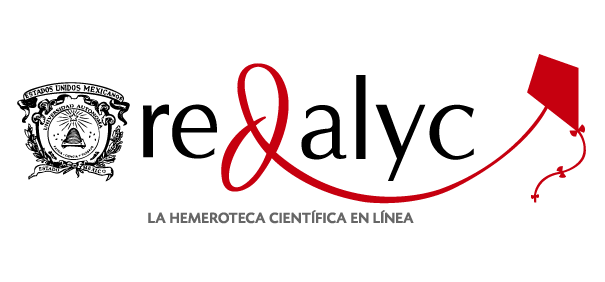Spatial stories
What can RPG teach to organization studies?
DOI:
https://doi.org/10.12712/rpca.v18i3.62524Abstract
Like RPG, organizations depend on interactions between actors with different roles that follow negotiated rules to generate events organized by narratives. Organizational everyday life is constantly permeated by fictional/narrative elements, mobilized to produce/give meaning to actions and objectives. We used RPG to explore the narrative nature of organizing and understand how narrative practices shape and organize everyday life. We focus on De Certeau’s the discussions about spatial stories to analyze data from an ethnography on the organizing of RPG. It contributes to understanding of organizing processes in which narrative practices occupy a central position, by integrating materiality, interactivity and narrativity.
Downloads
References
Angrosino, M. V. (2007). Doing Ethnographic and Observational Research. SAGE Publications Ltd.
Bispo, M. de S. (2016). Tourism as practice. Annals of Tourism Research, 61, 170-179.
Buchanan, I. (2000). Michel de Certeau: cultural theorist. SAGE Publications.
Calás, M. B. & Smircich, L. (1999). Past postmodernism? Reflections and tentative directions. Academy of Management Review, 24(4), 649–672.
Carlile, P. R., Nicolini, D., Langley, A. & Tsoukas, H. (2013). How Matter Matters: Objects, Artifacts, and Materiality in Organization Studies. In: Carlile, P. R.; Nicolini, D.; Langley, A. & Tsoukas, H. (Eds.) How Matter Matters: Objects, Artifacts, and Materiality in Organization Studies (pp. 1-16). Oxford University Press.
Chia, R. (1995). From Modern to Postmodern Organizational Analysis. Organization Studies, 16(4), 604–759.
Cnossen, B. & Bencherki, N. (2019). The role of space in the emergence and endurance of organizing: How independent workers and material assemblages constitute organizations. Human Relations, 72(6), p. 1057–1080.
Cooper, R. & Burrell, G. (1988). Modernism, postmodernism and organizational analysis: an introduction. Organization Studies, 9(1), 91–112.
Courpasson, D. (2017). The politics of everyday. Organization Studies, 38(6), p.843-859.
Creswell, J. W., & Poth, C. N. (2013). Qualitative Inguiry & Research Design: Choosing among Five Approaches 53(9). SAGE Publications. https://doi.org/10.1017/CBO9781107415324.004
Cunliffe, A. L. (2010). Retelling tales of the field: In search of organizational ethnography 20 years on. Organizational Research Methods, 13(2), 224–239. https://doi.org/10.1177/1094428109340041
Czarniawska, B. (1998). A narrative approach to organization studies. SAGE Publications, Inc.
Czarniawska, B. (2008). Organizing: How to study it and how to write about it. Qualitative Research in Organizations and Management: An International Journal, 3(1), 4–20. https://doi.org/10.1108/17465640810870364
De Certeau, M. (1988). The practice of everyday life. University of California Press.
Denis, J.. Langley, A., & Rouleau, L. (2007). Strategizing in pluralistic contexts: rethinking theoretical frames. Human Relations, 60(1), 179–215.
Dey, P & Teasdale, S. (2016). The tactical mimicry of social enterprise strategies: acting “as if” in the everyday life of third sector organizations. Organization, 23(4), p.1-20, 2016.
Fenton, C. & Langley, A. (2011). Strategy as Practice and the Narrative Turn. Organization Studies, 32(9), 1171–1196.
Geertz, C. (1973). The interpretation of cultures (Basic Book).
Graizbord, D., Rodríguez-Muñiz, M., & Baiocchi, G. (2017). Expert for a day: Theory and the tailored craft of ethnography. Ethnography, 18(3), 322–344. https://doi.org/10.1177/1466138116680007
Hanquinet, L, Roose, H, & Savage, M. (2014). The Eyes of the Beholder: Aesthetic Preferences and the Remaking of Cultural Capital. Sociology, 48(1), 111–132.
Humle, D. M. & Pedersen, A. R. (2015). Fragmented work stories: Developing an antenarrative approach by discontinuity, tensions and editing. Management Learning, 46(5), p.582-597.
Jarzabkowski, P. (2004). Strategy as Practice: Recursiveness, Adaptation, and Practices-in-Use. Organization Studies, 25(4), 529–560.
Maclean, M., Harvey, C. & Chia, R. (2011). Sensemaking, storytelling and the legitimization of elite business careers. Human Relations, 65(1), p.17-40.
Reckwitz, A. (2002). Toward a theory of social practices: A development in culturalist theorizing. European Journal of Social Theory, 5(2), p. 243–263.
Ropo, A, & Höykinpuro, R. (2017). Narrating organizational spaces. Journal of Organizational Change Management, 30(3), 357–366.
Saldanha, A. A. & Batista, J. R. M. (2009). A concepção do role-playing game (RPG) em jogadores sistemáticos. Psicologia: Ciência e profissão, Brasília, 29(4), p. 700-717.
Schatzki, T. R. (2001). Introduction: Practice Theory. In: T. R. Schatzki, K. Knorr-Cetina, & E. Von Savigny (Eds.), The Practice Turn in Contemporary Theory (pp. 10–23). Routledge.
Serbena, C. A. (2006). Mito do Herói nos jogos de representação (RPG) (Thesis). Programa Interdisciplinar de Pós-Graduação em Ciências Humanas, Universidade Federal de Santa Catarina, Florianópolis.
Weick, K. E. (1979). The social psychology of organizing. Addison-Wesley Publishing Company.
Weick, K. E., Sutcliffe, K. M., & Obstfeld, D. (2005). Organizing and the Process of Sensemaking. Organization Science, 16(4), 409–421. https://doi.org/10.1287/orsc.1050.0133
Wilson, W. J., & Chaddha, A. (2009). The role of theory in ethnographic research. Ethnography, 10(4), 549–564. https://doi.org/10.1177/1466138109347009
Yanow, D. (2012). Organizational ethnography between toolbox and world-making. Journal of Organizational Ethnography, 1(1), 31–42.
Downloads
Published
Issue
Section
License
Authors retain the copyright and grant the journal the right of first publication with simultaneously license under the Creative Commons Attribution License, permitting sharing the paper with acknowledgment of its first publication in this journal.
Authors are allowed to take additional contracts for non-exclusive distribution of the version of the paper published in this journal (eg, publish in institutional repository or publish as a chapter of a book), always with an acknowledgment of its initial publication in this journal.


